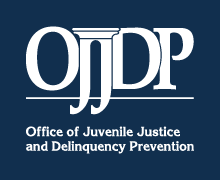First time offenders
Longitudinal Study of Social and Biological Factors in Crime Executive Summary
Inmate Adjustment and Change During Shock Incarceration
Termination Rate of Adult Criminal Careers, Working Paper
Analyses of Two Danish Data Sets
Drug Use Homophily in Adolescent Offenders' Close Friendship Groups
Victim, Offender, and Situational Characteristics of Violent Crime
Maricopa County's Drug Court: An Innovative Program for First- Time Drug Offenders on Probation
Bridging the Gap between Research and Practice: The Role of Science in Addressing the Effects of Incarceration on Family Life
New Orleans District Attorney Diversion Program
Classifying Driving-While-Intoxicated Offenders: The Experiences of a Citywide DWI Drug Court
Cost Matters: A Randomized Experiment Comparing Recidivism Between Two Styles of Prisons
Implementation Evaluation of the First Incarceration Shock Treatment Program: A Boot Camp for Youthful Offenders in Kentucky, Final Report
Decade of Drug Treatment Court Research
An Assessment of the Effectiveness of Civil Citation as an Alternative to Arrest among Youth Apprehended by Law Enforcement
State Responses to Mass Incarceration
Researchers have devoted considerable attention to mass incarceration, specifically its magnitude, costs, and collateral consequences. In the face of economic constraints, strategies to reduce correctional populations while maintaining public safety are becoming a fiscal necessity. This panel will present strategies that states have undertaken to reduce incarceration rates while balancing taxpayer costs with ensuring public safety.
See the YouTube Terms of Service and Google Privacy Policy
Violent Repeat Victimization: Prospects and Challenges for Research and Practice
Research tells us that a relatively small fraction of individuals experience a large proportion of violent victimizations. Thus, focusing on reducing repeat victimization might have a large impact on total rates of violence. However, research also tells us that most violent crime victims do not experience more than one incident during a six-month or one-year time period. As a result, special policies to prevent repeat violence may not be cost-effective for most victims.
See the YouTube Terms of Service and Google Privacy Policy
Going Home (or Not): How Residential Change Might Help the Formerly Incarcerated Stay Out of Prison
Dr. Kirk discusses how Hurricane Katrina affected those formerly incarcerated persons originally from New Orleans and their likelihood of returning to prison. Kirk also discussed potential strategies for fostering residential change among those who were incarcerated, focusing specifically on parole residency policies and the provision of public housing vouchers.
See the YouTube Terms of Service and Google Privacy Policy
Don't Jump the Shark: Understanding Deterrence and Legitimacy in the Architecture of Law Enforcement
Deterrence theory dominates the American understanding of how to regulate criminal behavior but social psychologists' research shows that people comply for reasons that have nothing to do with fear of punishment; they have to do with values, fair procedures and how people connect with one another. Professor Meares discussed the relevance of social psychologists' emerging theory to legal theory and practice and how deterrence and emerging social psychology theories intertwine.
See the YouTube Terms of Service and Google Privacy Policy
The Importance and Impact of Cold Case Units
Practitioners from across the criminal justice system speak to the importance of cold case units and the impact they can have.
See the YouTube Terms of Service and Google Privacy Policy



